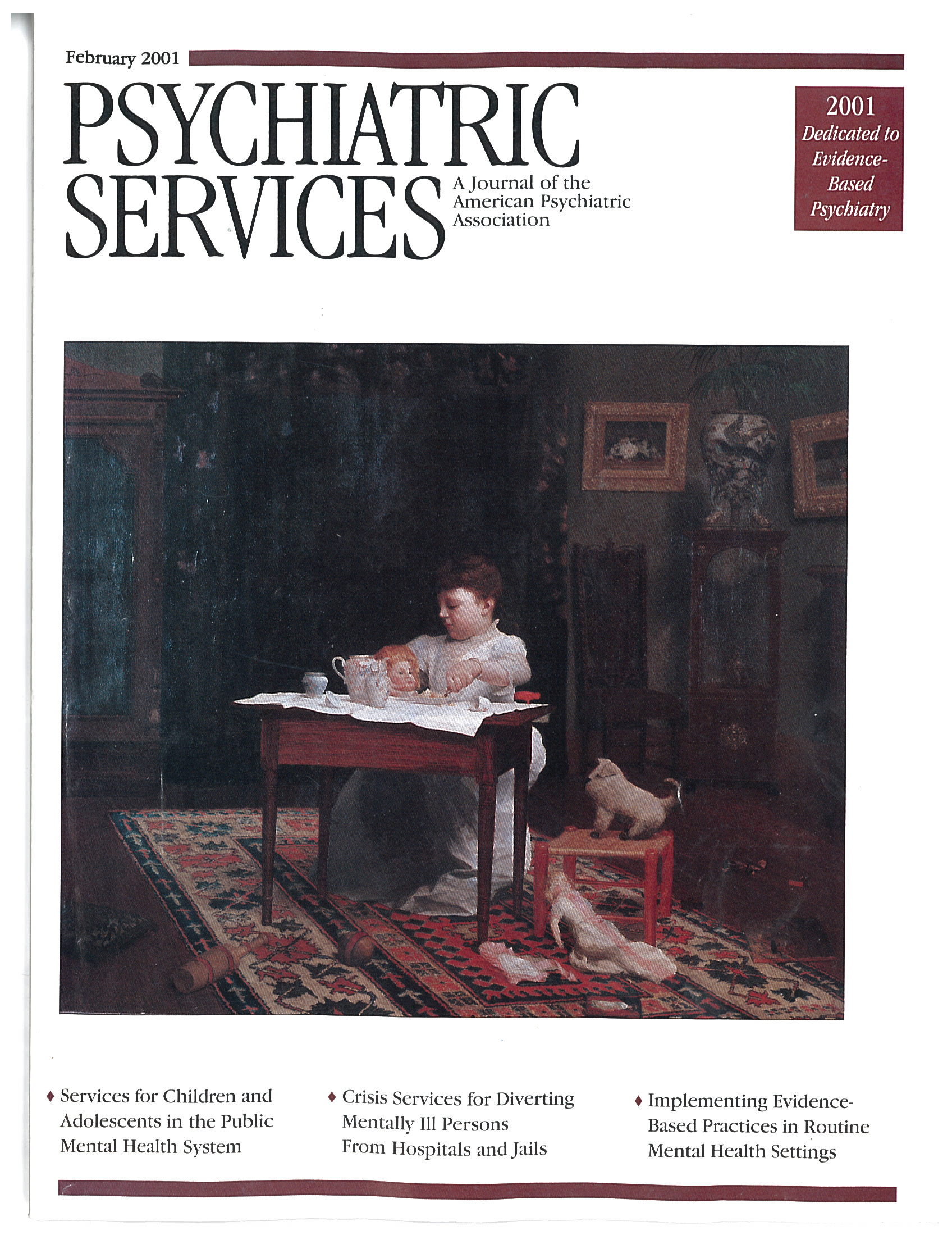Consumer Satisfaction at a Child and Adolescent State Psychiatric Hospital
Abstract
OBJECTIVE: This study examined satisfaction with services among patients in a child psychiatric hospital and their parents, and assessed the relationship between consumer satisfaction and the perception of improvement in the problem that led to hospitalization. METHODS: A consumer satisfaction survey developed by the investigators was administered to three sampling waves of child and adolescent psychiatric inpatients (N=157) and their parents or guardians (N=111). Ninety-five percent of patients contacted and 97 percent of their parents or guardians agreed to participate in the study. The survey provided data about the children's and parents' satisfaction with inpatient care and their perceptions of the children's clinical improvement. RESULTS: Most parents and children reported high satisfaction with patient care. Twenty-eight percent of children and 21 percent of parents reported some form of abuse by the staff during the hospital stay. Those who reported abusive behavior were significantly less satisfied with the hospital experience than those who did not report abuse. The participants' perception of clinical improvement was only weakly related to their satisfaction. CONCLUSIONS: Most child psychiatric patients and their parents will participate in consumer satisfaction surveys about inpatient care. Consumers are critical of a hospital if specific prompts in the survey are provided. An unexpectedly high level of consumer-reported abuse was found. Consumer-perceived clinical improvement was only weakly related to satisfaction.



